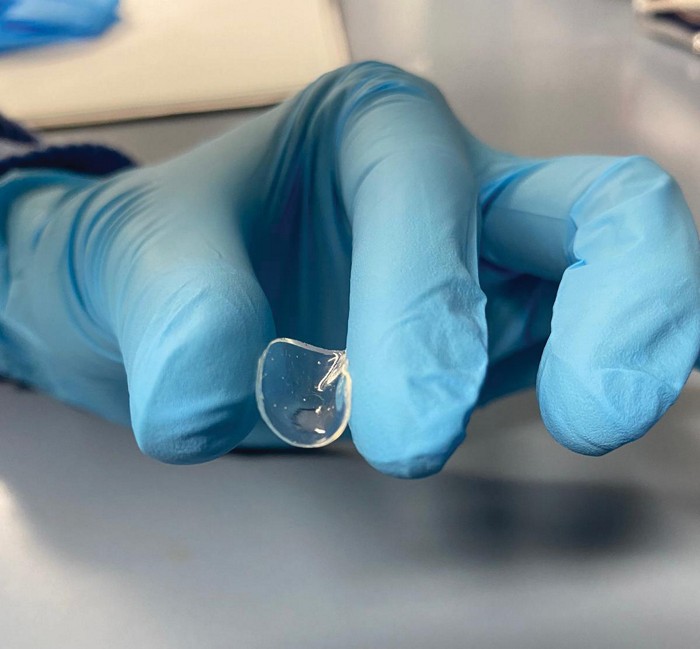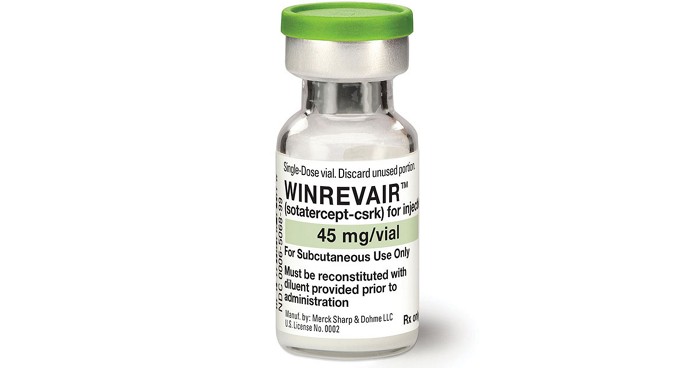Advertisement
Grab your lab coat. Let's get started
Welcome!
Welcome!
Create an account below to get 6 C&EN articles per month, receive newsletters and more - all free.
It seems this is your first time logging in online. Please enter the following information to continue.
As an ACS member you automatically get access to this site. All we need is few more details to create your reading experience.
Not you? Sign in with a different account.
Not you? Sign in with a different account.
ERROR 1
ERROR 1
ERROR 2
ERROR 2
ERROR 2
ERROR 2
ERROR 2
Password and Confirm password must match.
If you have an ACS member number, please enter it here so we can link this account to your membership. (optional)
ERROR 2
ACS values your privacy. By submitting your information, you are gaining access to C&EN and subscribing to our weekly newsletter. We use the information you provide to make your reading experience better, and we will never sell your data to third party members.
Biologics
Covid-19
Vir and GSK monoclonal antibody authorized for emergency use in COVID-19
Sotrovimab may protect against virus variants, although sales potential is uncertain
by Ryan Cross
June 3, 2021
| A version of this story appeared in
Volume 99, Issue 21

Vir Biotechnology, working with GlaxoSmithKline, is the third firm to successfully develop a monoclonal antibody therapy for treating COVID-19. The US Food and Drug Administration granted an emergency use authorization (EUA) May 26 for the firm’s sotrovimab for treating mild-to-moderate COVID-19 in people at high risk of progressing to severe disease.
Support nonprofit science journalism
C&EN has made this story and all of its coverage of the coronavirus epidemic freely available during the outbreak to keep the public informed. To support us:
Donate Join Subscribe
Sotrovimab joins antibodies made by Eli Lilly and Company and Regeneron Pharmaceuticals, which have EUAs for the same purpose. In a Phase 3 clinical trial, sotrovimab reduced the risk of hospitalization or death in high-risk adults by 85% compared with a placebo.
Early in the pandemic, Vir began looking for antibodies from a person who had recovered from infection with severe acute respiratory syndrome coronavirus (SARS-CoV) in 2003. The firm identified an antibody that neutralized both SARS-CoV and the new coronavirus, SARS-CoV-2, by binding to a region of the spike protein that is similar in the two coronaviruses.
Vir says lab studies show the antibody is also effective against variants of SARS-CoV-2—including ones first discovered in the UK, South Africa, Brazil, and India.
If that broad protection holds up in humans, it could help sustain sales of the Vir therapy. In April, the FDA revoked the EUA for Lilly’s first COVID-19 antibody, bamlanivimab, as some virus variants are resistant to the drug. Bamlanivimab is still authorized for use when combined with Lilly’s second antibody, etesevimab. But even distribution of the combo has been paused in eight US states where certain virus variants now account for more than 10% of COVID-19 cases.
Nonetheless, the sales potential of sotrovimab is unclear. Regeneron and Lilly both benefited from large deals with the US government for their antibodies. The US agreed to purchase up to 1.55 million doses of Regeneron’s therapy for nearly $3.1 billion. The firm’s sales through March amounted to $448 million in the US, plus $177 million outside the US, where its profits are shared with Roche.
Lilly has done better, with $810 million in bamlanivimab sales in 2020, before the EUA was revoked, and $871 million in sales of bamlanivimab and etesevimab in the first quarter of 2021.




Join the conversation
Contact the reporter
Submit a Letter to the Editor for publication
Engage with us on Twitter